A chain of hinge rotators that uses lots of funky trees to wind sideways along the ground like a real sidewinder snake.
Throttle to start sidewinding. Roll to turn. Turning is the fastest when turning into the sidewinding direction. It gradually turns into the sidewinding direction while moving so it needs course correction often. AG1 to reverse the sidewinding direction. VTOL up to increase the ground clearance while sidewinding. Increasing the clearance can help with bumpy terrain and steep slopes but makes traveling on flat ground slower and rougher. Also make sure to reduce throttle when going up slopes.
Controls
Throttle - sidewind
Roll - turn
AG1 - reverse winding direction
VTOL up - increase ground clearance
Gifs
A real sidewinder snake

My build sidewinding around maywar, watch AG1 reverse the direction

Specifications
General Characteristics
- Created On Windows
- Wingspan 0.8ft (0.3m)
- Length 36.9ft (11.3m)
- Height 0.8ft (0.2m)
- Empty Weight 2,445lbs (1,109kg)
- Loaded Weight 2,445lbs (1,109kg)
Performance
- Wing Loading N/A
- Wing Area 0.0ft2 (0.0m2)
- Drag Points 152
Parts
- Number of Parts 46
- Control Surfaces 0
- Performance Cost 849

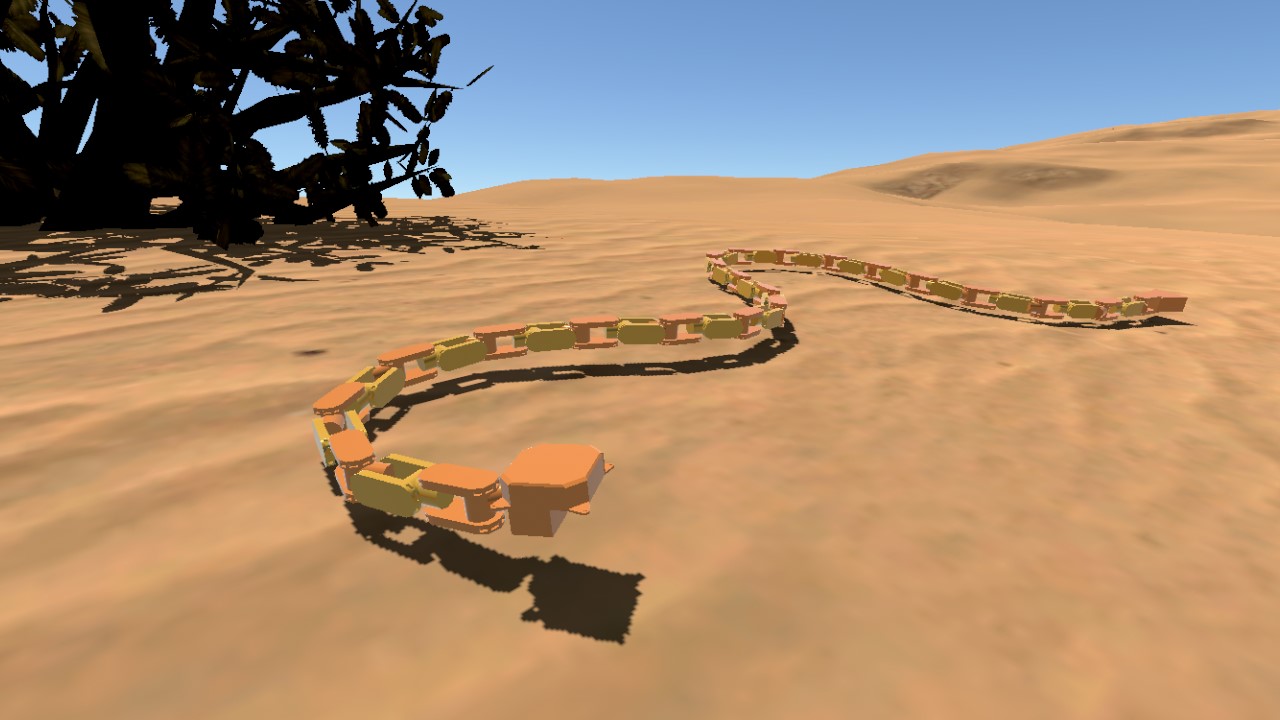
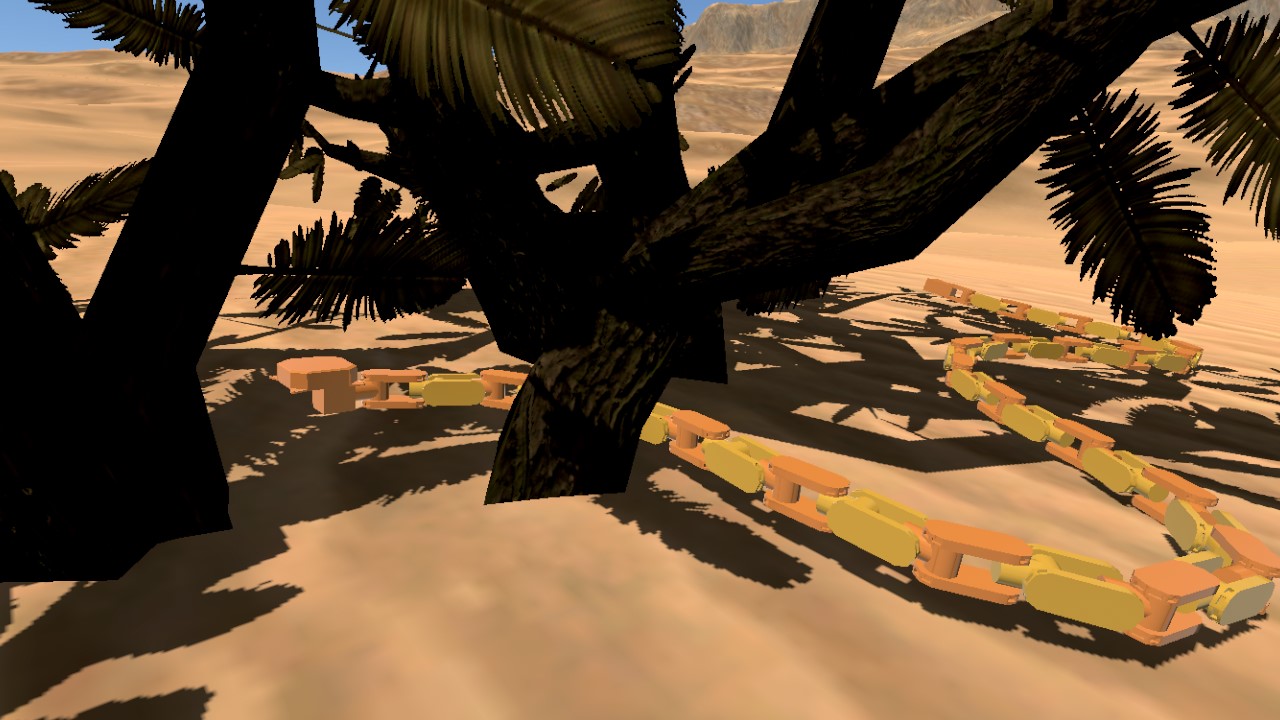
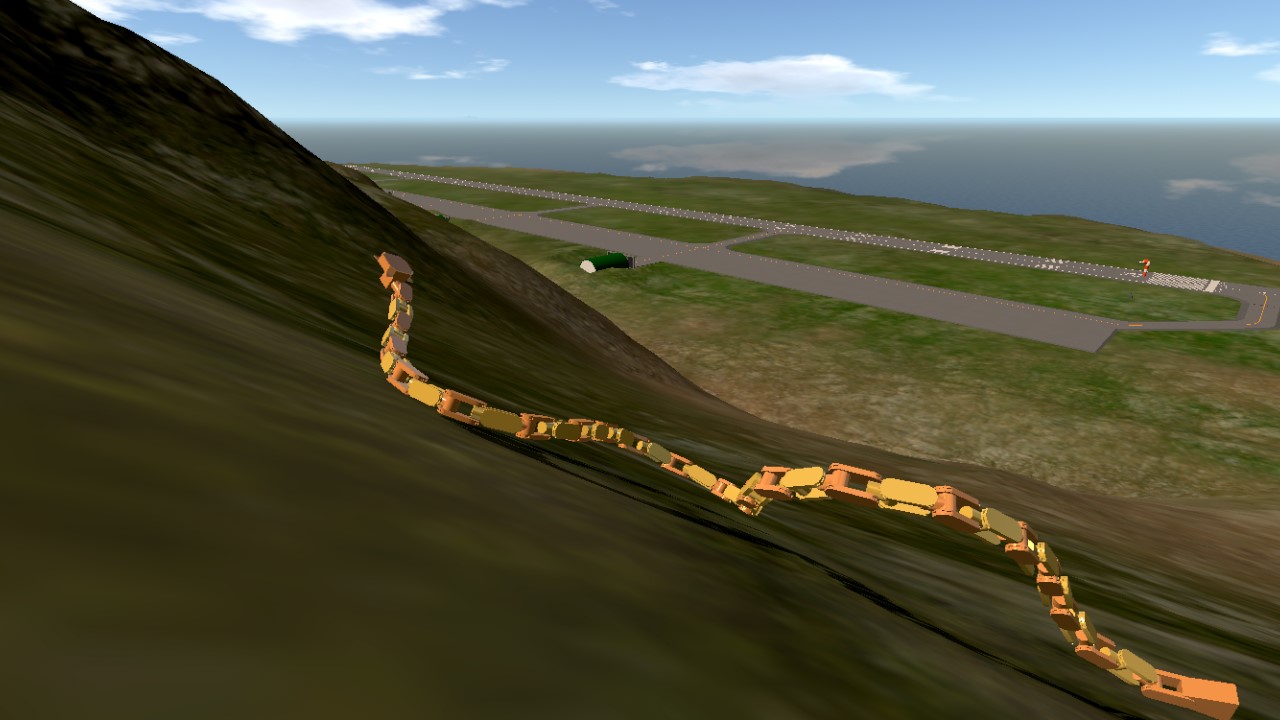
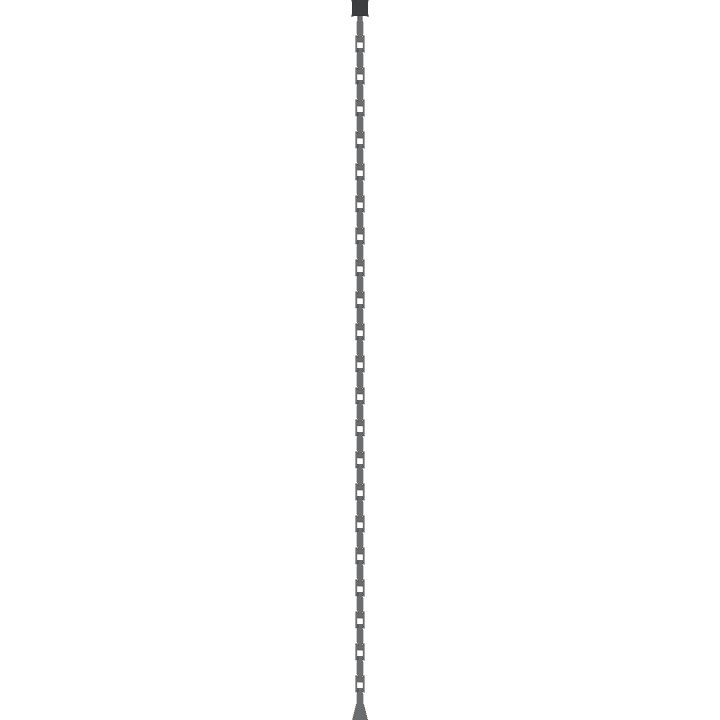
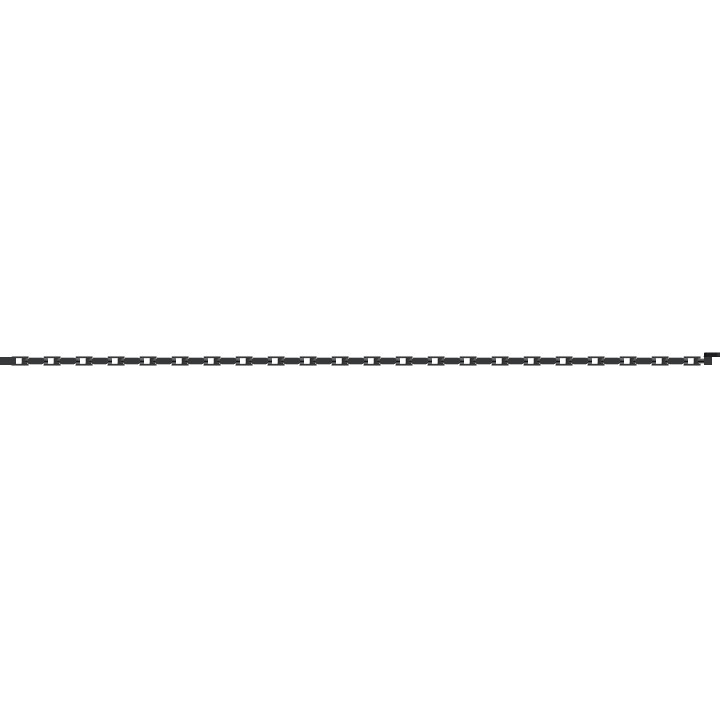

lol AIM-9X
Why does it look like a figet toy
First it was the water snake now the sidewinder snake
First it was the water snake now the sidewinder snake
simplesnek
Aim-9s, s is for snake
snek
he l o n g
snek
snek
new sidewinder variant?
Can you make "AMRAAM" snake?
This is so fun icl, amazing build
air to ground snake eye bomb
a nice snaKe
Awesome!
this is really cool
NO STEP ON SNEK !
Let’s see if cats can dodge this snake
That's got to be the strangest looking AIM-9 variant I've seen
Doesn't look like it's SARH. Must be IR.
Snek
@Mosquitowithagun oh yeah, the The missile knows where it is at all times. It knows this because it knows where it isn't, by subtracting where it is, from where it isn't, or where it isn't, from where it is, whichever is greater, it obtains a difference, or deviation. The guidance sub-system uses deviations to generate corrective commands to drive the missile from a position where it is, to a position where it isn't, and arriving at a position where it wasn't, it now is. Consequently, the position where it is, is now the position that it wasn't, and it follows that the position where it was, is now the position that it isn't. In the event of the position that it is in is not the position that it wasn't, the system has required a variation. The variation being the difference between where the missile is, and where it wasn't. If variation is considered to be a significant factor, it too, may be corrected by the GEA. However, the missile must also know where it was. The missile guidance computance scenario works as follows: Because a variation has modified some of the information the missile has obtained, it is not sure just where it is, however it is sure where it isn't, within reason, and it knows where it was. It now subracts where it should be, from where it wasn't, or vice versa. By differentiating this from the algebraic sum og where it shouldn't be, and where it was. It is able to obtain a deviation, and a variation, which is called "air"
@Rayquaza4590 well.. you see..
The missile knows where it is at all times. It knows this because it knows where it isn't, by subtracting where it is, from where it isn't, or where it isn't, from where it is, whichever is greater, it obtains a difference, or deviation. The guidance sub-system uses deviations to generate corrective commands to drive the missile from a position where it is, to a position where it isn't, and arriving at a position where it wasn't, it now is. Consequently, the position where it is, is now the position that it wasn't, and it follows that the position where it was, is now the position that it isn't. In the event of the position that it is in is not the position that it wasn't, the system has required a variation. The variation being the difference between where the missile is, and where it wasn't. If variation is considered to be a significant factor, it too, may be corrected by the GEA. However, the missile must also know where it was. The missile guidance computance scenario works as follows: Because a variation has modified some of the information the missile has obtained, it is not sure just where it is, however it is sure where it isn't, within reason, and it knows where it was. It now subracts where it should be, from where it wasn't, or vice versa. By differentiating this from the algebraic sum of where it shouldn't be, and where it was. It is able to obtain a deviation and a variation, which is called error
Where is the aim 9 then?